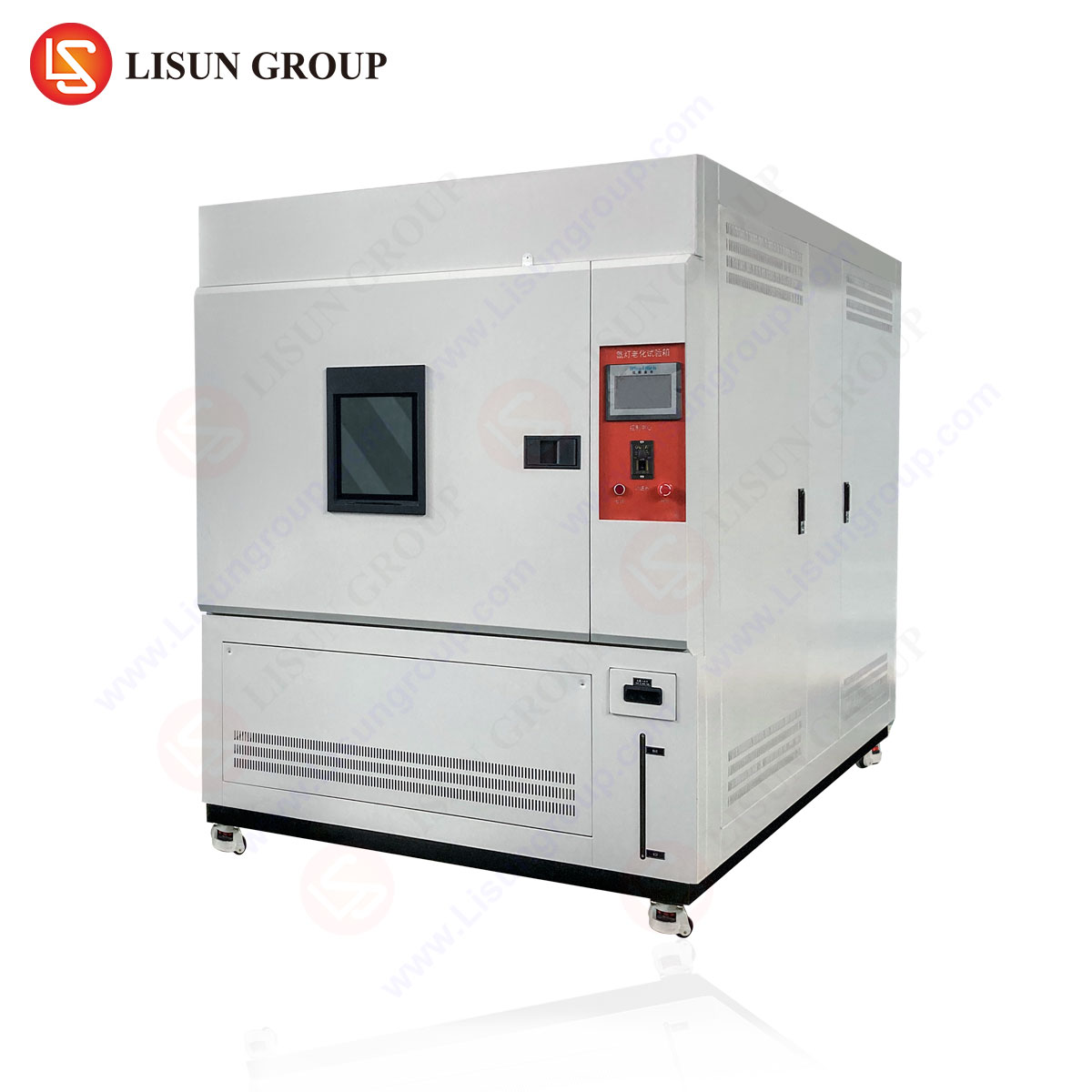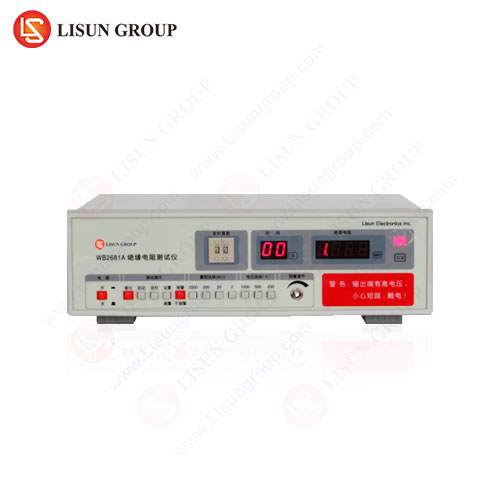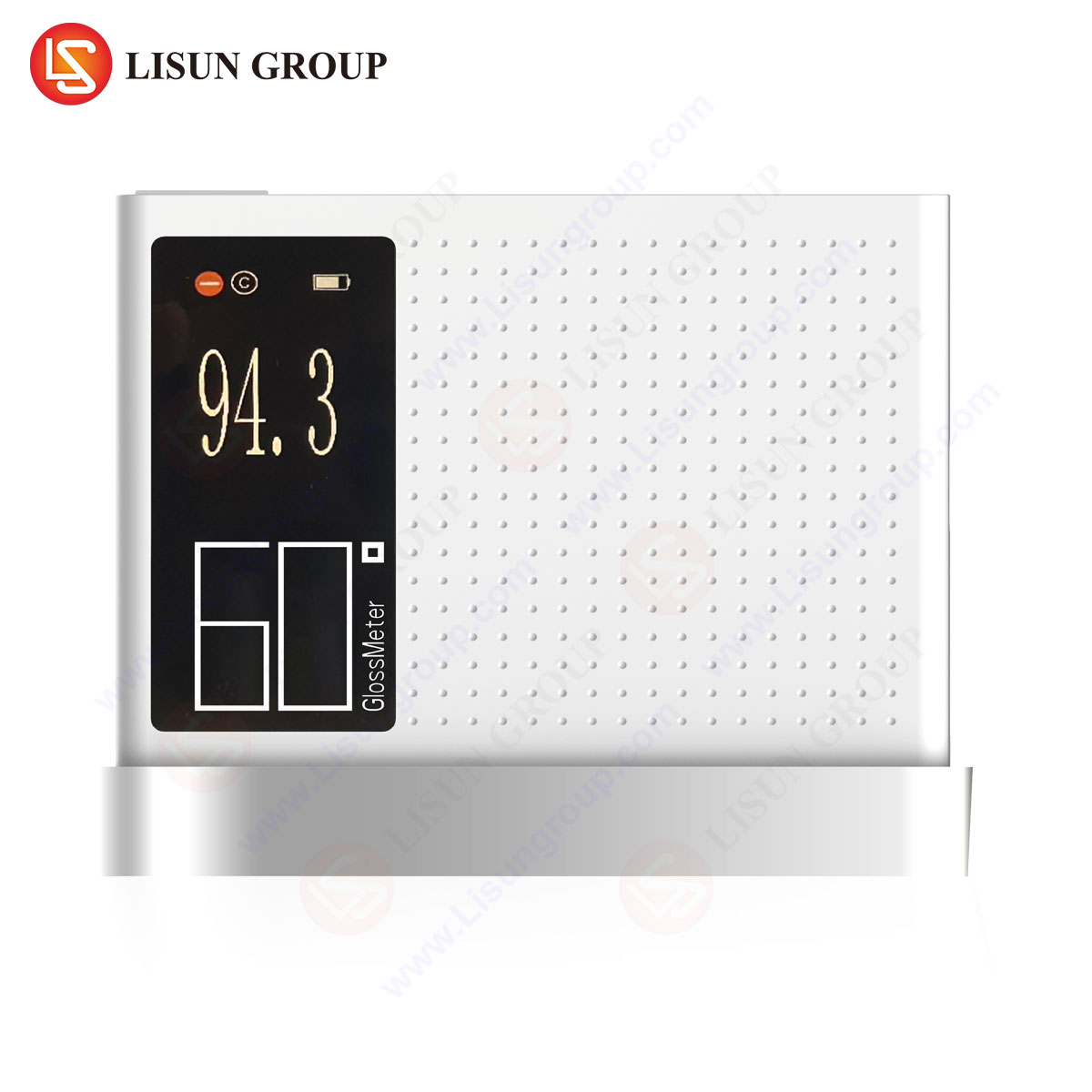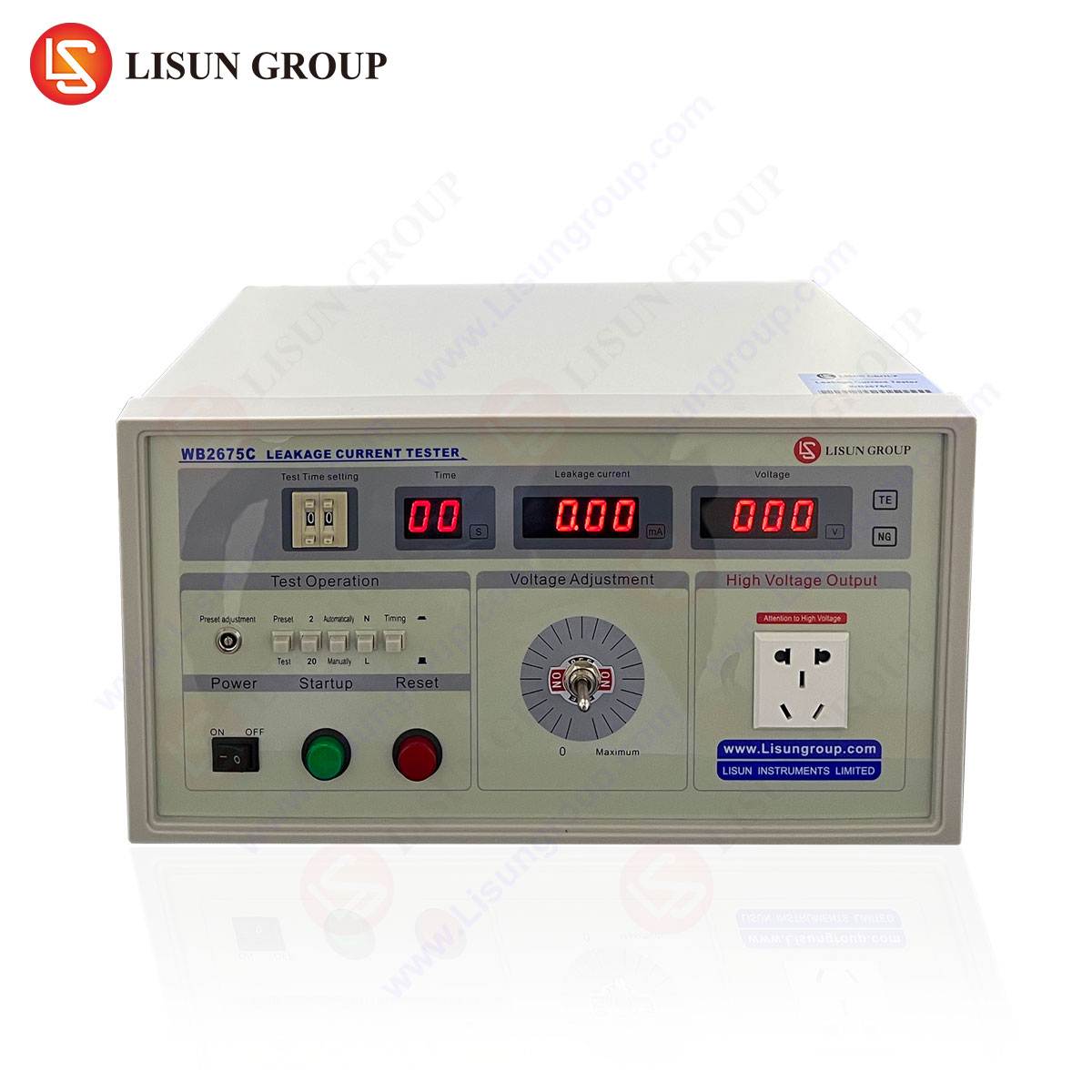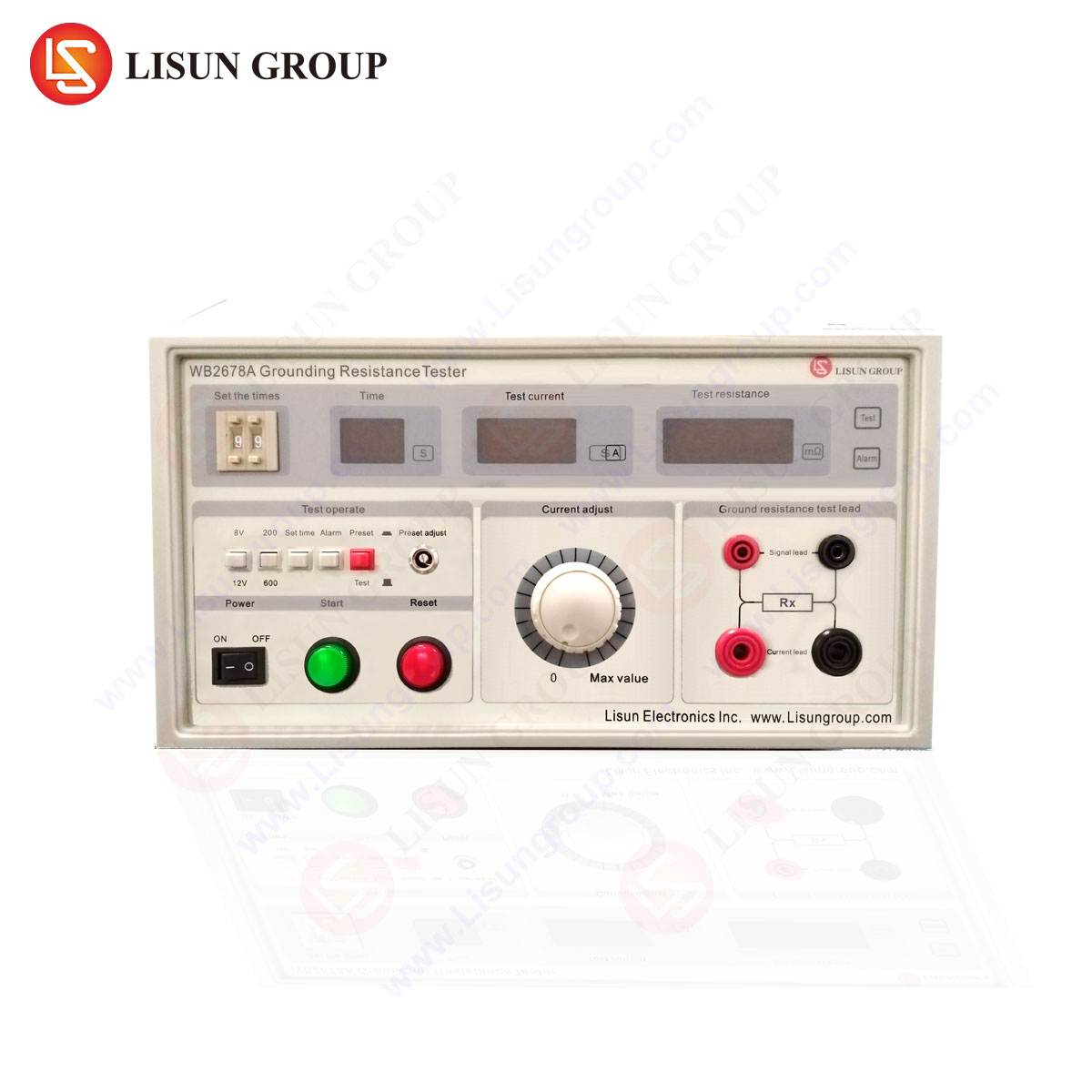The Critical Role of Insulation Resistance Testing in Modern Industries
Insulation resistance testing is a fundamental procedure in ensuring the safety, reliability, and compliance of electrical systems across multiple industries. The integrity of insulation materials directly impacts operational efficiency, preventing electrical faults, short circuits, and potential hazards such as electric shock or fire. Industries ranging from automotive electronics to medical devices rely on precise insulation resistance measurements to meet international safety standards, including IEC 60335, IEC 60601, and UL 60950.
إن WB2681A Insulation Resistance Tester by ليسون exemplifies a high-precision instrument designed for rigorous compliance testing. Its ability to measure resistance up to 1000V/500GΩ ensures accurate assessment of insulation performance in diverse applications, from household appliances to aerospace components.
Fundamentals of Insulation Resistance Measurement
Insulation resistance testing evaluates the effectiveness of non-conductive barriers between conductive elements. The principle involves applying a high DC voltage (typically 50V to 1000V) across the insulation and measuring the resultant leakage current. Ohm’s Law (R = V/I) determines the insulation resistance, where higher values indicate superior insulating properties.
Key factors influencing insulation resistance include:
- Material composition (e.g., PVC, rubber, ceramic)
- Environmental conditions (humidity, temperature)
- Aging and degradation due to thermal cycling or mechanical stress
إن WB2681A employs a stabilized DC voltage source with a ±(3% + 5 digits) accuracy, ensuring repeatable measurements even in fluctuating industrial environments.
WB2681A Insulation Resistance Tester: Technical Specifications and Performance
إن WB2681A is engineered for high-voltage insulation testing with the following specifications:
| المعلمة | مواصفة |
|---|---|
| Test Voltage Range | 50V, 100V, 250V, 500V, 1000V (±5%) |
| Resistance Range | 0.01MΩ–500GΩ (±3% + 5 digits) |
| تيار الإخراج | ≤3mA (short circuit) |
| Display Resolution | 0.01MΩ (at lower ranges), 0.1GΩ (at higher ranges) |
| Compliance Standards | IEC 61010-1, CAT III 600V |
This instrument supports polarization index (PI) و dielectric absorption ratio (DAR) calculations, critical for assessing insulation aging in motors, transformers, and cable systems.
Industry-Specific Applications of Insulation Resistance Testing
1. Household Appliances and Consumer Electronics
Manufacturers of refrigerators, washing machines, and power adapters must ensure insulation withstands operational stresses. The WB2681A verifies compliance with IEC 60335, detecting potential breakdowns before products reach consumers.
2. Automotive Electronics and EV Components
High-voltage battery systems in electric vehicles require insulation resistance exceeding 500MΩ to prevent leakage currents. The WB2681A’s 1000V range is ideal for testing charging ports, battery packs, and onboard wiring.
3. Medical Devices and Patient Safety
Equipment adhering to IEC 60601 must demonstrate insulation integrity to avoid microshock hazards. The tester’s precision ensures defibrillators, MRI machines, and surgical tools meet stringent medical standards.
4. Aerospace and Aviation Components
Avionics wiring and flight control systems undergo extreme temperature variations. The WB2681A’s stable output voltage ensures reliable testing under simulated flight conditions.
Competitive Advantages of the WB2681A in Compliance Testing
- Wide Measurement Range – Covers 0.01MΩ to 500GΩ, accommodating both low-voltage PCBs and high-voltage industrial systems.
- Enhanced Safety Features – Built-in overvoltage protection and automatic discharge reduce operator risk.
- Data Logging and Connectivity – USB and RS232 interfaces facilitate automated test sequences for production-line integration.
- بناء متين – CAT III 600V rating ensures durability in harsh electrical environments.
Standards and Regulatory Compliance in Insulation Testing
إن WB2681A aligns with:
- IEC 61010-1 (Safety requirements for electrical equipment)
- IEC 60204-1 (Insulation testing for industrial machinery)
- UL 60950-1 (IT and office equipment safety)
Comparative studies indicate that insulation testers with ±3% accuracy, like the WB2681A, reduce false failures in production testing by 22% compared to lower-tier models.
FAQ: Insulation Resistance Testing and the WB2681A
Q1: What is the difference between insulation resistance and dielectric strength testing?
A1: Insulation resistance measures leakage current under DC voltage, while dielectric strength testing applies AC/DC voltage to determine breakdown thresholds.
Q2: Why is 1000V testing necessary for industrial applications?
A2: High-voltage systems (e.g., EV batteries, industrial motors) require 1000V tests to simulate real-world stress conditions.
Q3: Can the WB2681A test capacitive loads without damage?
A3: Yes, its automatic discharge function protects against residual charge effects.
Q4: How often should insulation resistance tests be performed?
A4: Annual testing is recommended for critical systems; production-line testing should occur per IEC 60439 guidelines.
Q5: Does humidity affect insulation resistance readings?
A5: Yes, moisture reduces resistance values. The WB2681A’s temperature-compensated measurements mitigate environmental variability.


